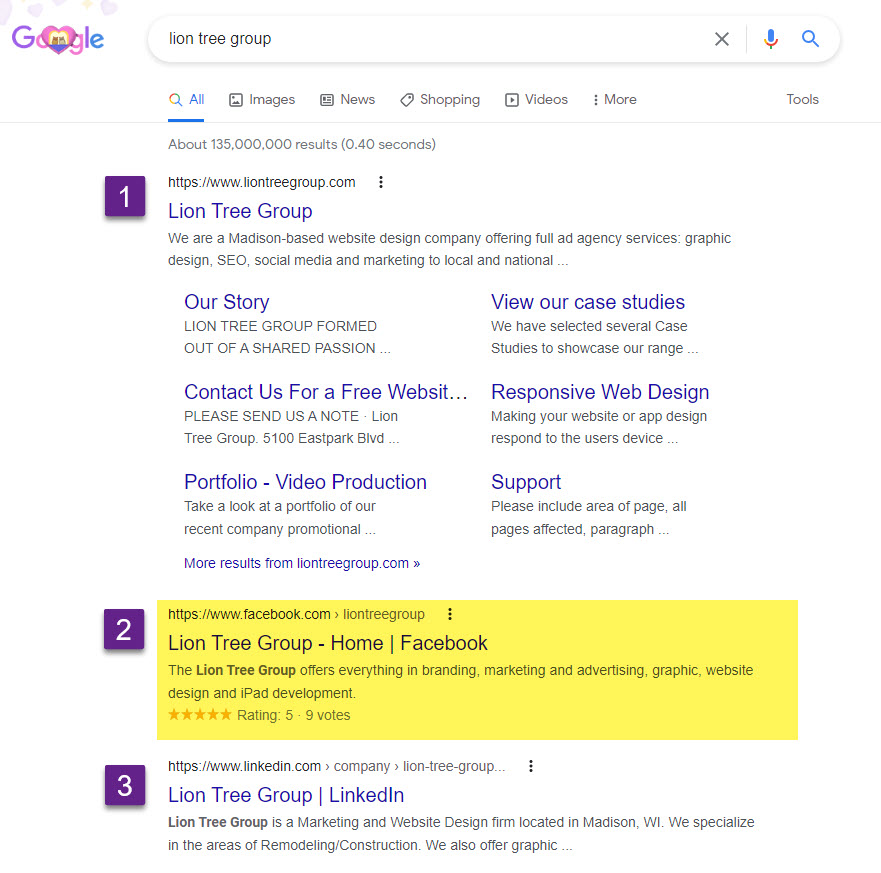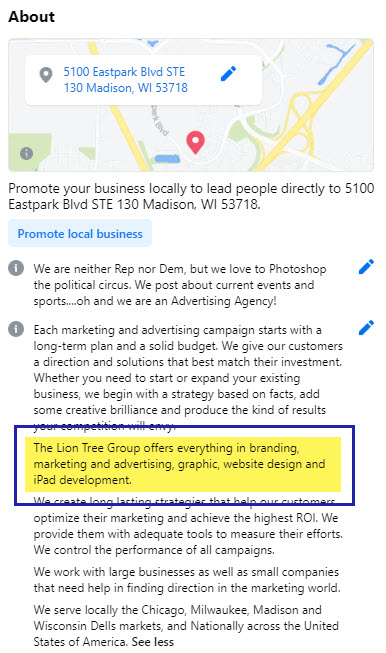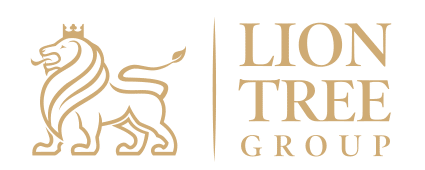What Indexing Facebook Pages Means For Organic Google Results
What Indexing Facebook Pages Means for Organic Google Results
Recently, Facebook pages and images have started showing up much higher in organic search results for business names or branded terms. In many cases, a Facebook page is showing up as the 2nd organic result for a name match search. What impact might this have on SEO strategy and what does it mean for Facebook page management?
When Did Google Start Prioritizing Facebook Results?
In late 2021, Google started placing a higher priority in organic results for Facebook images and pages. Historically, Facebook pages were found on page 2 or below in Google results and images weren’t shown unless you did a specific search by “site:” in Google Images. Here’s how our Facebook page is showing up in results currently:

As you can see, the newfound importance Google has placed on Facebook pages is undeniable. I encourage you try it for yourself.
Why Is This Change Important?
As Facebook’s average daily user count have started to plateau and even fall, we’ve seen an increase of daily page visits – up 46% – despite a reduced number of posts from our team. At least some of that traffic is attributable to search and image results.

We’ve also seen an increase in Facebook visitors to our website over this same timeframe.
But one thing to consider is what people are seeing in search results. Google is automatically pulling the meta description from deep in our About Us text on our Facebook page. This is the same for both mobile and desktop users. While you can’t directly control what Google shows, you can at least make sure your page description is up-to-date with current information about your services. In our case, we updated our core description to contain the information that Google was automatically pulling.

Facebook Images Appearing in Search
In addition to Facebook pages now appearing in searches, we’re also seeing videos and images showing. We’ve long known the poor performance of Facebook’s internal search algorithm, which makes it nearly impossible to get relevant results for people, events, or images, so this change to Google’s platform is welcomed. Using Google’s site: search feature, it’s now easy to see recently posted images or find posts that were historically not showing in Google. Here’s a sample of Andersen Windows posts:

You can also use Google Advanced Image Search to find certain images sizes or usage rights.
What If I Don’t Want My Facebook Page Showing Up In Google?
While Facebook doesn’t explicitly block Google from crawling pages, users can turn on a privacy setting to request that search engines not index a page. This setting is for users and not for business pages or groups. It also might not apply to images, videos, or links where others have shared information about you. The best advice if you want make sure your profile isn’t showing up is to use a name variant or limit what you share.
The bottom line is that while Facebook use is dropping, it is important to keep your business page up to date, including curating reviews and photos, because your page is likely part of the first splash for organic results on Google.
Need some help promoting your business? For strategic social media campaigns, organic SEO, or a new website, contact Lion Tree Group today!







